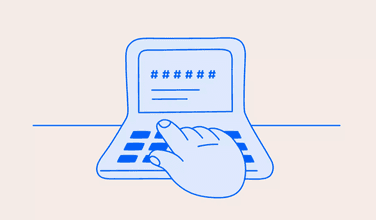A Guide to Covid-19 Relief for UK Businesses
The announcements and updates might be overwhelming to keep up with. Start here.

As a small business fighting to keep your business afloat, the announcements and updates might be overwhelming to keep up with. Here’s a place to start. We’ve pulled together a list of relevant support from the UK government for small businesses registered in the UK like yours to help you through this incredibly tough period.
Let’s examine a few of the most prominent relief packages in more detail.
Furlough Scheme (AKA Coronavirus Job Retention Scheme)
What is it?
When you furlough employees, they temporarily stop working for your company for a set period—and so anything you pay to them during this period will be compensated to you by the government until March 2021. The compensation is 80% of their salary (up to £2,500 per month), with employers encouraged to top up the remaining 20% themselves.
According to Gov.UK:
- You can claim 80% of employees’ salaries, up to £2,500, taking the scheme back to the level it was at in August before greater employer pension contributions were required in September and October.
- You can’t use the furlough scheme if you have staff costs that are publicly-funded (even if you’re a private company).
- Your claim must be for a minimum period of a week (so employees stop working for a week or longer).
- You can’t ask furloughed employees to do any profit-generating work for your company or provide any services to your company.
- Flexible furlough continues to be an option for you, meaning your employees can work part-time and receive a furlough grant for the hours they do not work. There is no need for an employee to have been furloughed before in order to be put on this scheme.
Hannah’s restaurant has to temporarily close down due to new lockdown measures. Thankfully, with the Coronavirus Job Retention Scheme, she can put her entire staff on furlough until 2021, with the government paying 80% of their monthly salaries. This will help her staff get paid and keep their job until after the lockdown has died down.
How to apply for the Furlough Scheme (AKA Coronavirus Job Retention Scheme)
Employers must first discuss the impending furlough with their staff and confirm the furlough in writing. Then, they have to follow a 5-step process:
- Check if you can claim: Double-check your eligibility criteria.
- Decide who will apply: Am I going to apply myself or should an agent, like my accountant, act on my business’s behalf? If you run payroll in-house then your payroll assistant should be able to process the furlough pay through the payroll software or your accountant who runs your payroll can submit furlough.
- Prepare to make your claim: You’ll need to provide some supporting documents, including your company’s UK bank account number and sort code, your PAYE scheme reference number, the number of employees being furloughed, their National Insurance numbers, the start and end date of each claim, and your corporation tax (CT41G) unique taxpayer reference (UTR).
- Calculate the claim: You’ll need to work out the total amount being paid to furloughed employees, as well as employer National Insurance Contributions and pension contributions for any period before 1st August 2020.
- Make your claim: Ensure that you have your Government Gateway user ID and password to hand.
Things to take note of when applying:
- You’ll need the Government Gateway user ID and password you got when you registered for PAYE online.
- If you do not finish your claim in one session, you can save a draft. You must complete your claim within seven days of starting it. All claims for periods from 1 July 2020 to 31 October 2020 must be submitted no later than 30 November 2020.
- Claims from 1 November 2020 must be submitted by 11.59 p.m., 14 calendar days after the month you’re claiming for. If this time falls on the weekend then claims should be submitted on the next working day. HMRC may accept a claim made after the relevant deadline if you had a reasonable excuse for failing to make a claim in time and you then claimed without delay after the excuse no longer applied.
| Claim for furlough days in | Claim must be submitted by |
| November 2020 | 14 December 2020 |
| December 2020 | 14 January 2021 |
| January 2021 | 15 February 2021 |
| February 2021 | 15 March 2021 |
| February 2021 | 15 March 2021 |
Coronavirus Business Interruption Loan Scheme
What is it?
The scheme, which is open until 31st January 2021, has been set up to help small businesses access crucial loans of up to £5 million. The government guarantees 80% of the finance to the lender and pays all associated interest and fees for the first 12 months.
The loan lasts up to 3 years for overdrafts and invoice finance facilities, whereas it lasts up to 6 years for loans and asset finance facilities.
How to know if I qualify for the Coronavirus Business Interruption Loan Scheme?
You’re eligible to apply for a loan so long as:
- Your business is based in the UK.
- Your business has a turnover of up to £45 million.
However, that’s not all. You also have to demonstrate that your business would still be viable if it weren’t for COVID-19 and that it’s been adversely impacted by the pandemic. If you’re looking to borrow £30,000 or more, you also need to confirm that your business wasn’t classified as “a business in difficulty” as of 31st December 2019. This means that you haven’t:
- Entered into collective insolvency proceedings.
- Incurred losses greater than half of your share capital (though this doesn’t apply to companies younger than three years old).
- Received rescue aid but not yet reimbursed the loan, terminated the guarantee, or are still subject to a restructuring plan.
Moreover, the following companies are not eligible:
- Banks and (re)insurers
- Public-sector bodies
- State-funded primary and secondary schools
Ayo’s business is suffering. He desperately needs funding for his hotel booking software startup, so he applies for the Coronavirus Business Interruption Loan Scheme. He finds a lender via the British Business Bank, applies for a loan, and is accepted. Ayo is looking for a £1 million 5-year-long loan, and so the government guarantees £800,000 worth of the loan to the lender, as well as paying all related interest and fees for the first 12 months.
How to apply for the Coronavirus Business Interruption Loan Scheme?
- First, head to the British Business Bank to learn more about the scheme and find a lender.
- Get in touch with your chosen lender. You’ll need to outline the amount of money you’re looking to borrow, what the money will be used for, and your proposed repayment plan. You’ll also need to provide management accounts, your business plan, historic accounts, and details of assets.
- The lender will make a decision and get back to you.
- If they turn you down, don’t worry—you can apply to other lenders.
The Coronavirus Bounce Back Loan
What is it?
With the Coronavirus Bounce Back Loan (BBL), small businesses can borrow between £2,000 to up to 25% of their annual turnover, with a cut off maximum at of £50,000.
This loan lasts 6 years and can be repaid in full at any time without incurring additional fees. This application is open till 31st January 2021,
As of April 2020, there are 28 potential lenders to choose from. The government guarantees 100% of the loan, and the first year is completely interest-free (as well as being free from any additional fees). After 12 months, the interest rate will rise to 2.5% per year.
Who is eligible for this?
You’re only able to apply to the loan if your business is:
- Based in the UK
- Was established before 1 March 2020.
- Has been negatively impacted by COVID-19
You cannot apply if your business is one of the following:
- banks, insurers and reinsurers (but not insurance brokers)
- public-sector bodies
- state-funded primary and secondary schools
You also can’t apply if you’re already claiming from these schemes:
- The Coronavirus Business Interruption Loan Scheme
- Coronavirus Large Business Interruption Loan Scheme (CLBILS)
- COVID-19 Corporate Financing facility
If your business was classified as a “business in difficulty” as of the 31st December 2019, you’ll need to confirm that you’re actively complying with existing state aid restrictions.
Jennifer desperately needs a loan to keep her small business afloat. She finds a lender, gets in touch outlining that she requires a £20,000 loan, and is approved. She plans to repay the loan in full within the following two years so that she’s only subject to one year’s worth of interest rates (at 2.5%).
How to apply for the Coronavirus Bounce Back Loan?
- Pick and choose from the 11 participating lenders.
- Fill out the lender’s application form and show that you’re eligible for the BBL.
- The lender will get back to you with their answer. If they refuse you the loan, you’ll still be able to apply elsewhere.
Don’t go through this tough COVID-19 period alone
COVID-19 has wreaked havoc on the UK economy, with small businesses arguably bearing the brunt of this destruction. However, rest assured, there are government-led schemes out there to help you through this difficult period.
If you want to find out more about how to apply, or are looking for expert advice in accounting and bookkeeping, get in touch today.







